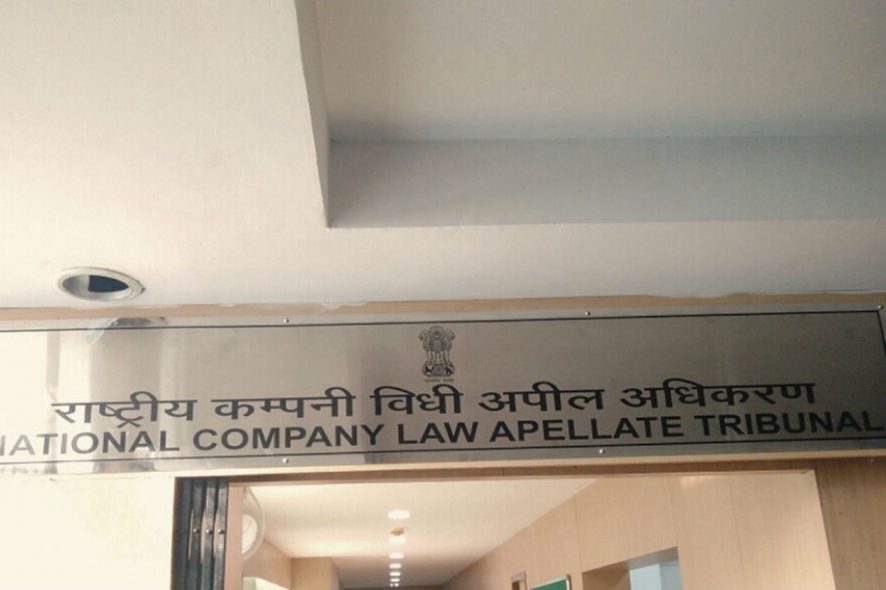National Company Law Appellate Tribunal: Canara Bank, the appellant-financial creditor, challenged the impugned order passed by National Company Law Tribunal, Hyderabad Bench whereby while admitting the application preferred by Appellant under Section 7 of the Insolvency and Bankruptcy Code, 2016 passed an order of moratorium thereby prohibiting the institution of suits or continuation of pending suits or proceedings except before the High Courts and Supreme Court of India, against the Corporate Debtor including execution of any judgment, decree or order in any court of law, Tribunal, arbitration panel or other authority.
The counsel appearing on behalf of the appellant contended that the Adjudicating Authority cannot exclude any court from the purview of moratorium for the purpose of recovery of amount or execution of any judgment or decree, including the proceeding, if any, pending before the High Courts and Supreme Court of India against a ‘corporate debtor’. NCLAT while adjudicating the matter opined that Section 14 relates to ‘Moratorium’ which the Adjudicating Authority is required to declare at the time of admission of the application for ‘corporate insolvency resolution The NCLAT stated that,
“from Section 14(1) (a), it was clear that institution of suits or continuation of pending suits or proceedings against the corporate debtor including execution of any judgment, decree or order by any court of law, tribunal, arbitration panel or other authority come within the purview of ‘moratorium’ and that the said provision specifically did not exclude any Court, including the Hon’ble High Courts or Hon’ble Supreme Court of India.”
The NCLAT, dismissing the appeal, and further clarifying the impugned order passed by Tribunal relating to ‘moratorium’ held in clear terms that,
“The Hon’ble Supreme Court has power under Article 32 of the Constitution of India and Hon’ble High Court under Article 226 of Constitution of India which power cannot be curtailed by any provision of an Act or a Court. In view of the aforesaid provision of law, we make it clear that ‘moratorium’ will not affect any suit or case pending before the Hon’ble Supreme Court under Article 32 of the Constitution of India or where an order is passed under Article 136 of Constitution of India. ‘Moratorium’ will also not affect the power of the High Court under Article 226 of Constitution of India. However, so far as suit, if filed before any High Court under original jurisdiction which is a money suit or suit for recovery, against the ‘corporate debtor’ such suit cannot proceed after declaration of ‘moratorium’, under Section 14 of the I&B Code.”
[Canara Bank v. Deccan Chronicle Holdings Limited, 2017 SCC OnLine NCLAT 255, decided on 14.9.2017]







